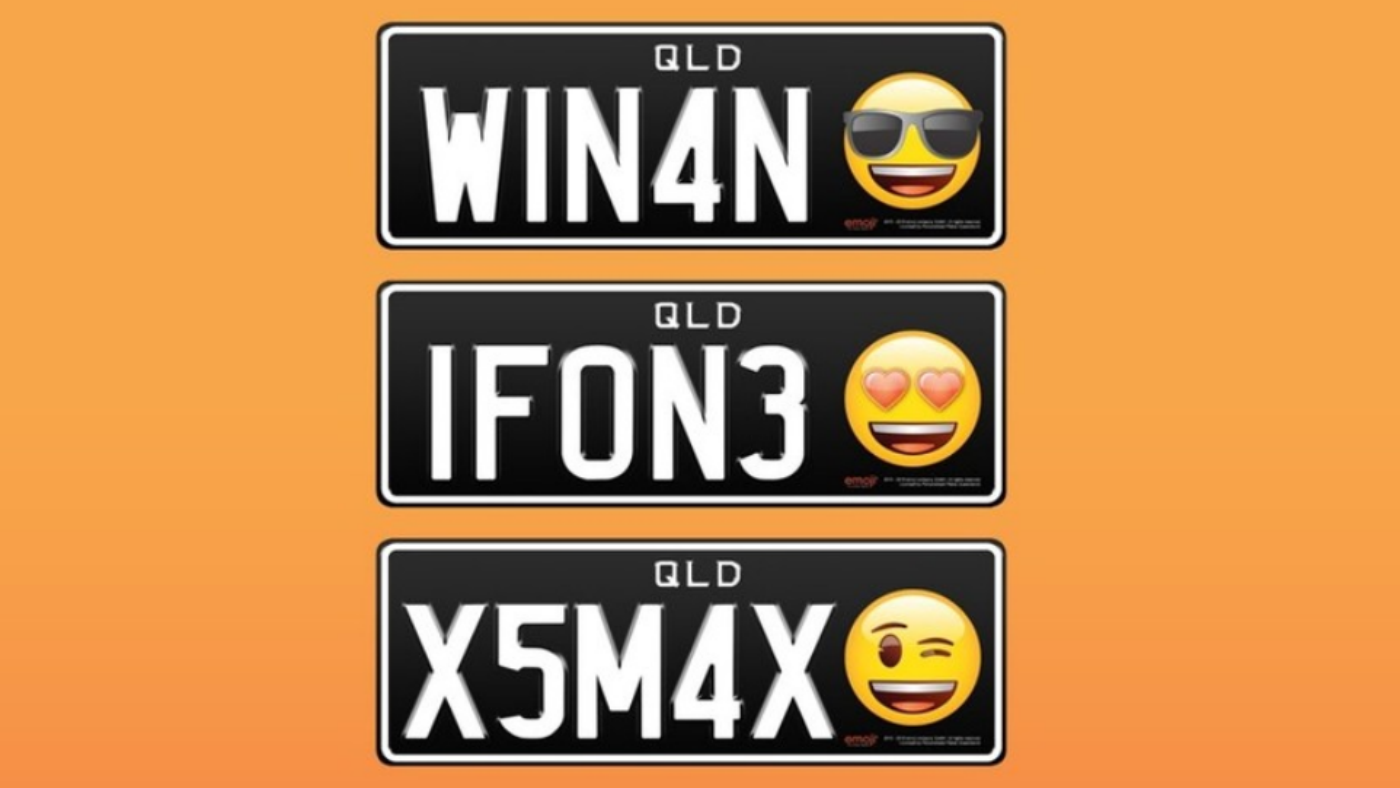Emoji number plates launching in Australia
Drivers in Queensland can choose between five symbols

A free daily email with the biggest news stories of the day – and the best features from TheWeek.com
You are now subscribed
Your newsletter sign-up was successful
Drivers in the Australian state of Queensland are being offered the chance to buy licence plates personalised with their favourite emojis.
Motorists will get a choice of five symbols - laugh out loud, wink, sunglasses, heart and smile - under a trial scheme being rolled out by state government-owned company Personalised Plates Queensland (PPQ) from 1 March. The new emoji plates will cost between AU$160 (£88) to AU$500 (£274), reports the Daily Mail.
PPQ said the emojis would be part of the so-called “background” of the plate, and would not be part of the vehicle’s official registration.
The Week
Escape your echo chamber. Get the facts behind the news, plus analysis from multiple perspectives.

Sign up for The Week's Free Newsletters
From our morning news briefing to a weekly Good News Newsletter, get the best of The Week delivered directly to your inbox.
From our morning news briefing to a weekly Good News Newsletter, get the best of The Week delivered directly to your inbox.
“For quite some time we’ve seen that you can support your favourite team or your favourite town with a symbol on your number plate,” Royal Automobile Club of Queensland (RACQ) spokesperson Rebecca Michael told Australian TV network 7 News. “And using an emoji is no different.”
But Bill Potts, president of the Queensland Law Society, fears the emoji plates could cause confusion, reports regional news site Brisbane Times.
“Clearly the government is trying to sex up number plates, with a view to making more money, and I can understand that,” Potts said. “But the purpose of number plates is for the police to be able to identify vehicles.
“How do you write down the emoji in your number plate after an accident?”
A free daily email with the biggest news stories of the day – and the best features from TheWeek.com
-
 How to Get to Heaven from Belfast: a ‘highly entertaining ride’
How to Get to Heaven from Belfast: a ‘highly entertaining ride’The Week Recommends Mystery-comedy from the creator of Derry Girls should be ‘your new binge-watch’
-
 The 8 best TV shows of the 1960s
The 8 best TV shows of the 1960sThe standout shows of this decade take viewers from outer space to the Wild West
-
 Microdramas are booming
Microdramas are boomingUnder the radar Scroll to watch a whole movie
-
 Epstein files topple law CEO, roil UK government
Epstein files topple law CEO, roil UK governmentSpeed Read Peter Mandelson, Britain’s former ambassador to the US, is caught up in the scandal
-
 Iran and US prepare to meet after skirmishes
Iran and US prepare to meet after skirmishesSpeed Read The incident comes amid heightened tensions in the Middle East
-
 Israel retrieves final hostage’s body from Gaza
Israel retrieves final hostage’s body from GazaSpeed Read The 24-year-old police officer was killed during the initial Hamas attack
-
 China’s Xi targets top general in growing purge
China’s Xi targets top general in growing purgeSpeed Read Zhang Youxia is being investigated over ‘grave violations’ of the law
-
 Panama and Canada are negotiating over a crucial copper mine
Panama and Canada are negotiating over a crucial copper mineIn the Spotlight Panama is set to make a final decision on the mine this summer
-
 Why Greenland’s natural resources are nearly impossible to mine
Why Greenland’s natural resources are nearly impossible to mineThe Explainer The country’s natural landscape makes the task extremely difficult
-
 Iran cuts internet as protests escalate
Iran cuts internet as protests escalateSpeed Reada Government buildings across the country have been set on fire
-
 US nabs ‘shadow’ tanker claimed by Russia
US nabs ‘shadow’ tanker claimed by RussiaSpeed Read The ship was one of two vessels seized by the US military